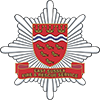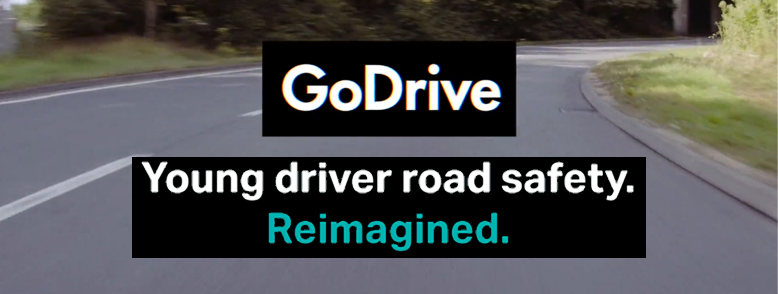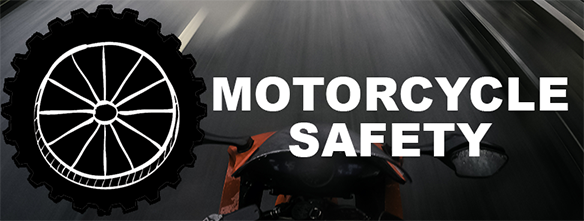The Fatal Four
These are the most common causes of road accidents. Take the advice and stay safe on the road.
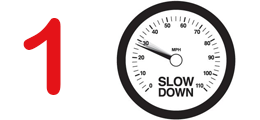
Drivers and riders who are travelling at inappropriate speeds are more likely to crash
Arrive alive and not dead on time
When driving, a few miles per hour can mean the difference between life and death. The faster you drive, the less time you have to stop if something unexpected happens.
If you kill someone whilst speeding, you will have to live with the long-term emotional consequences.
Speed limits are there for a reason
The facts
- Speed is one of the main factors in fatal road incidents
- The risk of death is approximately 4 times higher when a pedestrian is hit at 40mph than at 30mph
The law
- You must not drive faster than the speed limit for the type of road and your type of vehicle
- The speed limit is the absolute maximum and it doesn't mean its safe to drive at this speed in all conditions
Concerned about speeding in your area?
Community Speedwatch (CSW) is a national initiative where active members of local communities join with the support of the Police to monitor speeds of vehicles using speed detection devices.
- Find out more about Community Speedwatch
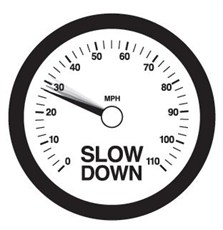
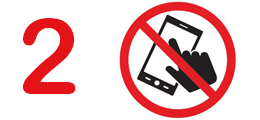
Make the glove compartment the phone compartment
The facts
- If you are using a hands-free or handheld mobile phone you will be slower at recognising and reacting to hazards.
- You are 4 times more likely to be in a crash if you use your phone.
- Your reaction times are 2 times slower if you text and drive than if you drink drive. This increases to 3 times if you use a handheld phone.
- Even careful drivers can be distracted by a call or text – and a split-second lapse in concentration could result in a crash. At 30 mph a car travels 100 feet in 2.3 seconds.
The law
- It’s illegal to use a handheld mobile when driving – including using your phone to follow a map, read a text or check social media. This applies even if you’re stopped at traffic lights or queuing in traffic.
- It is also illegal to use a handheld phone or similar device when supervising a learner driver. This applies even if you’re stopped at traffic lights or queuing in traffic.
- You can only use a handheld phone if you are safely parked, or need to call 999 or 112 in an emergency and it’s unsafe or impractical to stop.
- If you’re caught using a handheld phone while driving, you’ll get 6 penalty points on your licence and a fine of £200.
- If you get just 6 points in the first 2 years after passing your test, you will lose your licence.
- Using a hands-free device (for example, for navigation) is not illegal. However, if this distracts you and affects your ability to drive safely, you can still be prosecuted by the police.
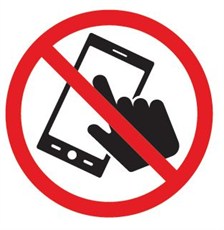
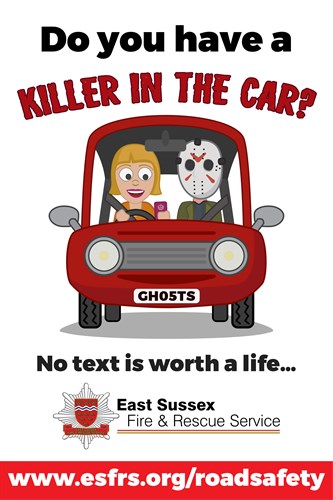
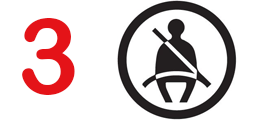
It doesn't matter how far the journey is… just belt up!
Seat belts and child seats are an important part of keeping you and your loved ones safe if the worst happens on the roads.
It doesn't matter how far the journey is... just belt up!
The facts
- In a crash you are twice as likely to die if you don’t wear a seat belt.
- Drivers and passengers aged 17-34 have the lowest seat belt-wearing rates, combined with the highest accident rate.
- People are less likely to use seat belts on short or familiar journeys – putting them at serious risk of injury in a crash.
The law
- If you are a driver or a passenger and fail to wear a seat belt in the front or the back of vehicles, you are breaking the law.
- If you are caught without a seat belt, you will face on-the-spot fines of £100. If you are prosecuted, the maximum fine is £500.
Child car seats
The safest way for children to travel in cars is in a child seat that is suitable for their weight and size. Even in a minor crash, an unrestrained child would be thrown about inside the vehicle, injuring themselves and others. They could be thrown from the car through one of the windows.
For more information on fitting child car seats, visit: www.rospa.com/road-safety/resources/films/child-car-seats/
Dogs
The Highway Code says that drivers must ‘make sure dogs and other animals are suitably restrained’ in your car. If you don’t follow the Highway Code, you could be considered to be driving without due care and attention. If you’re in an accident because you were distracted by your pet, this could be counted as dangerous driving.
Benefits of keeping pets secured include:
- preventing serious injuries to your pet if you’re in a car accident.
- preventing serious injuries to passengers and the driver - at just 30mph an unrestrained dog weighing 20kg, would be hurled forward with a force equivalent to the weight of a small moose!
- •reducing the changes of an accident caused by a dog distracting the driver or getting the way.
- •Making sure your insurance is valid - a lot of car insurance policies require you to restrain your pets properly.
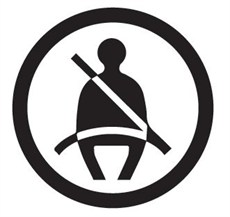
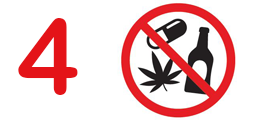
Have none for the road!
It is an offence to drive whilst unfit through alcohol or drugs
The Facts
- It is not possible to say how much alcohol you can drink and stay below the limit. The way alcohol affects you depends on:-
- Your weight, age, sex and metabolism (the rate your body uses energy)
- The type and amount of alcohol you're drinking
- What you have eaten recently
- Your stress levels at the time
If you are driving, its better to have NONE for the road
- Officers can test for cannabis and cocaine at the roadside. Officers can also screen for other drugs (including ecstasy, acid, ketamine and heroin at the police station. Even if you pass the roadside check, you can still be arrested if the police suspect that your driving is impaired by drugs.
If you drive whist using drugs, you are out of your mind
The consequences
There are strict penalties if you are convicted of drink/drug driving, including:
- a minimum 12 month driving ban
- a criminal record
- a hefty fine
- up to 6 months in prison
- an endorsement on your licence for 11 years
However, this list does not reflect the everyday consequences of being caught drink/drug driving which can include:
- increase in car insurance costs
- job loss
- trouble getting in to countries like the USA
- the shame of having a criminal record
- loss of independence
There's always an alternative
Most drink drivers don't plan to break the law. Make sure you don't become another statistic; here are some ways to avoid drinking and driving:
- Book a taxi. To make sure you get one, book it as early as in the evening.
- At the start of the night agree who's driving and not drinking. Look after the designated driver.
- Use public transport to get home.
- Don't get into a car driven by someone else who's been drinking.
- Help us to take known drink drivers off the road
We Support
Click on the images below for more information
TyreSafe is the UK’s charity dedicated to raising awareness of the importance of correct tyre maintenance.
